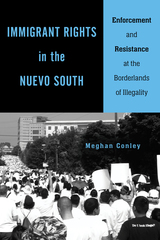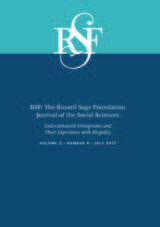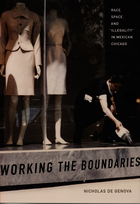
Every day, undocumented immigrants are rendered vulnerable through policies and practices that illegalize them. Moreover, they are socially constructed into dangerous criminals and taxpayer burdens who are undeserving of rights, dignity, and respect. Meghan Conley’s timely book, Immigrant Rights in the Nuevo South, seeks to expose and challenge these dehumanizing ideas and practices byexamining the connections between repression and resistance for unauthorized immigrants in communities across the American Southeast.
Conley uses on-the-ground interviews to describe fear and resistance from the perspective of those most affected by it. She shows how, for example, the Illegal Immigration Reform and Enforcement Act in Georgia prompted marches and an action that became “a day of non-compliance.” Likewise, an “enforcement lottery” that created unpredictable threats of arrest and deportation in the region mobilized immigrants to organize and demonstrate. However, as immigrant rights activists mobilize in opposition to the criminalization of undocumented people, they may unintentionally embrace stories of who deserves to be in the United States and who does not. Immigrant Rights in the Nuevo South explores these paradoxes while offering keen observations about the nature and power of Latinx resistance.

Caitlin Patler and Nicholas Branic find that undocumented individuals in immigrant detention facilities that are privately operated are less likely to be visited by family members than those in county or city jails, in part because private facilities have restricted visiting hours and are more difficult to access via public transportation. Lauren Heidbrink finds that unaccompanied minors in the custody of the Office of Refugee Resettlement (ORR) are less likely to be released to guardians or reunited with family members because ORR standards are much tougher than those used by child protective services for minor citizens.
Lauren E. Gulbas and Luis H. Zayas find that many children with undocumented parents experience symptoms of anxiety and depression due to fears about their parents’ status. Yet, increased access to financial, educational, legal, and other immigration-related resources for these families can help buffer these children against trauma related to deportation and family separations. Susan K. Brown and Alejandra J. Sanchez focus on children with undocumented mothers and show that because having an undocumented mother is associated with a reduction in children’s years of schooling, it also indirectly lowers their levels of voting, activism, and political awareness as young adults.
Although undocumented immigrants are more enmeshed in the U.S. than they have been in the past, their status prevents further integration into society. This issue reveals the consequences of illegality not just for undocumented immigrants, but also for their families and their communities.

De Genova worked for two and a half years as a teacher of English in ten industrial workplaces (primarily metal-fabricating factories) throughout Chicago and its suburbs. In Working the Boundaries he draws on fieldwork conducted in these factories, in community centers, and in the homes and neighborhoods of Mexican migrants. He describes how the meaning of “Mexican” is refigured and racialized in relation to a U.S. social order dominated by a black-white binary. Delving into immigration law, he contends that immigration policies have worked over time to produce Mexicans as the U.S. nation-state’s iconic “illegal aliens.” He explains how the constant threat of deportation is used to keep Mexican workers in line. Working the Boundaries is a major contribution to theories of race and transnationalism and a scathing indictment of U.S. labor and citizenship policies.
READERS
Browse our collection.
PUBLISHERS
See BiblioVault's publisher services.
STUDENT SERVICES
Files for college accessibility offices.
UChicago Accessibility Resources
home | accessibility | search | about | contact us
BiblioVault ® 2001 - 2024
The University of Chicago Press









